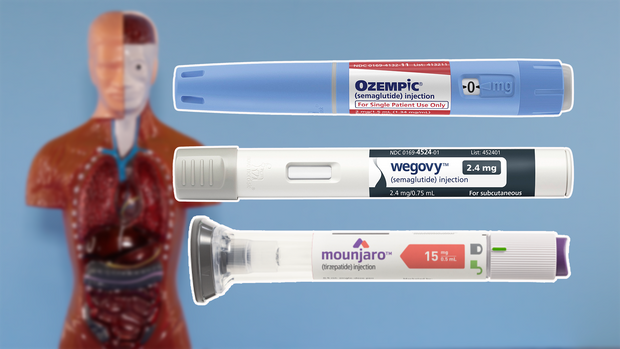Evolution of Weight-loss Drugs
The emergence of potent drugs like Wegovy, Mounjaro, and Ozempic has sparked immense interest among individuals grappling with diabetes and obesity worldwide. These medications offer a glimmer of hope for those seeking effective solutions. But what exactly are they, how are they administered, and who are the key players behind their production?
Understanding the Breakthrough: GLP-1 Mimetics
These groundbreaking drugs replicate the actions of a hormone called GLP-1 (glucagon-like peptide-1), naturally produced in the intestines. GLP-1 plays a crucial role in stimulating insulin production and inducing a sense of satiety, effectively curbing one’s appetite.
Primarily utilized for managing Type 2 diabetes, the most prevalent form of the condition, these medications have also shown promising results in aiding weight loss.
Tip: Please fill out the form if you or a friend would like more information about glucose monitors.
Administration and Development
Administered via weekly injections, major pharmaceutical giants such as Novo Nordisk, Eli Lilly, and Pfizer are actively pursuing the development of oral formulations for daily consumption.
However, like most medications, these drugs come with potential side effects including nausea, vomiting, and gastrointestinal disturbances.
Must Read CGMs in noncritical care hospitals optimizes glycemic control
Key Players and Market Trends
Novo Nordisk, a Danish pharmaceutical behemoth and a global leader in diabetes treatments, employs semaglutide in Wegovy, designed for obesity treatment, and in Ozempic, intended for Type 2 diabetes management.
While Wegovy gained approval in the US in 2021 and is available in select countries, Novo Nordisk aims for certification in France in the coming year.
Ozempic, sanctioned in the US in 2017, faced supply shortages due to overwhelming demand triggered by enthusiastic endorsements from celebrities and influencers on social media platforms.
Read Guide about Wegovy Dosage Guide: The Best Way For Weight Loss
According to a GlobalData report in March, Wegovy and Ozempic are forecasted to generate sales of $8.1 billion and $2.1 billion respectively by 2031 in the United States alone.
Eli Lilly’s tirzepatide, marketed as Mounjaro for Type 2 diabetes patients following US regulatory approval, has also been prescribed off-label for weight loss purposes.
Recently authorized in the US for obesity treatment under the name Zepbound, it is recommended for obese individuals and overweight patients with underlying conditions like Type 2 diabetes, elevated cholesterol, or high blood pressure.
Eli Lilly has priced Zepbound at $1,060 per month, aiming to address the needs of this market segment.
Also, read about CareSource’s Diabetes-Centric Initiative
Conclusion
The landscape of weight-loss medications is evolving rapidly with these innovative drugs offering promising prospects for managing diabetes and aiding weight loss. As research continues and accessibility widens, these pharmaceutical advancements have the potential to make significant contributions to global health and well-being.


